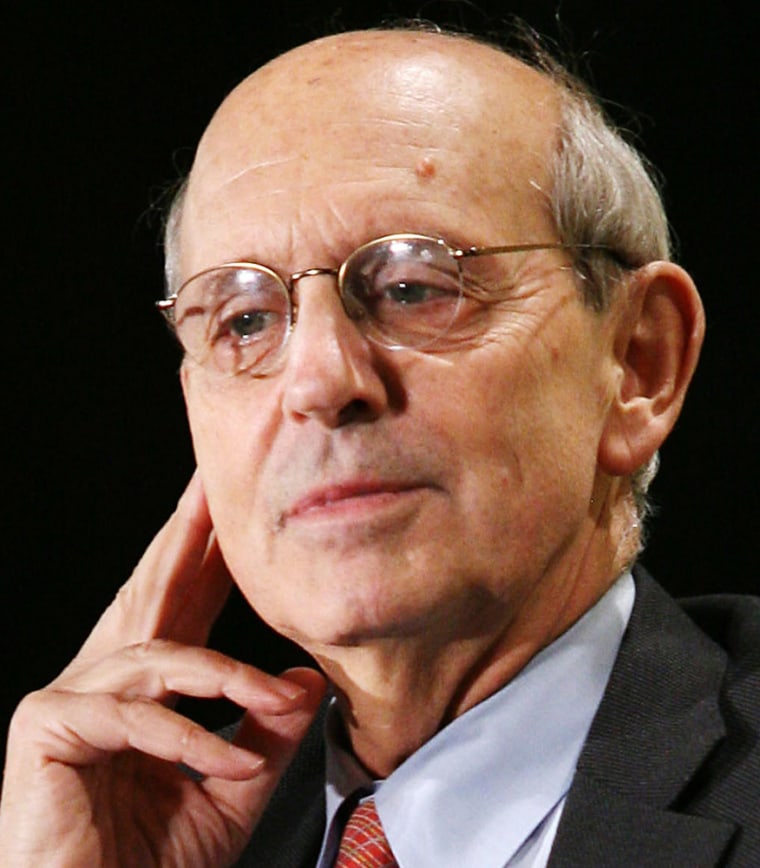Justice Stephen G. Breyer says the Supreme Court must promote the political rights of minorities and look beyond the Constitution's text when necessary to ensure that "no one gets too powerful."
Breyer, a Clinton appointee who has brokered many of the high court's 5-4 rulings, spoke in a televised interview that aired one day before justices heard a key case on race in schools. He said judges must consider the practical impact of a decision to ensure democratic participation.
"We're the boundary patrol," Breyer said, reiterating themes in his 2005 book that argue in favor of race preferences in university admissions because they would lead to diverse workplaces and leadership.
"It's a Constitution that protects a democratic system, basic liberties, a rule of law, a degree of equality, a division of powers, state, federal, so that no one gets too powerful," said Breyer, who often votes with a four-member liberal bloc of justices.
Racial integration
Monday, the court will heard arguments in a pair of cases involving integration plans in K-12 schools. The legal challenge, which is backed by the Bush administration, could be among the most significant school cases since the landmark Brown v. Board of Education ruling in 1954 banned racial segregation.
In 2003, the court upheld race-conscious admissions in higher education in a 5-4 opinion by Justice Sandra Day O'Connor.
O'Connor, however, has since retired and been replaced by conservative Justice Samuel Alito. Justice Antonin Scalia, meanwhile, has denounced the use of race in school admissions as lacking any support in the Constitution.
Strict interpretation questioned
In his interview, Breyer argued that in some cases it wouldn't make sense to strictly follow the Constitution because phrases such as "freedom of speech" are vague. Judges must look at the real-world context - not focus solely on framers' intent, as Scalia has argued - because society is constantly evolving, he said.
"Those words, 'the freedom of speech,' 'Congress shall pass no law abridging the freedom of speech' - neither they, the founders, nor those words tell you how to apply it to the Internet," Breyer said.
Pointing to the example of campaign finance, Breyer also said the court was right in 2003 to uphold on a 5-4 vote the McCain-Feingold law that banned unlimited donations to political parties.
Acknowledging that critics had a point in saying the law violates free speech, Breyer said the limits were constitutional because it would make the electoral process more fair and democratic to the little guy who isn't tied to special interests.
"You don't want one person's speech, that $20 million giver, to drown out everybody else's. So if we want to give a chance to the people who have only $1 and not $20 million, maybe we have to do something to make that playing field a little more level in terms of money," he said.
Abortion rights
Breyer, who has voted to uphold abortion rights, declined to comment on the court's role in deciding abortion. Justices this term are considering the constitutionality of so-called "partial-birth" abortion in a case some conservatives hope will be used to overturn the landmark 1973 Roe v. Wade ruling.
"The more the precedent has been around, the more people rely on it, the more secure it has to be," he said.
Breyer commented on "Fox News Sunday," in an interview taped last week.
